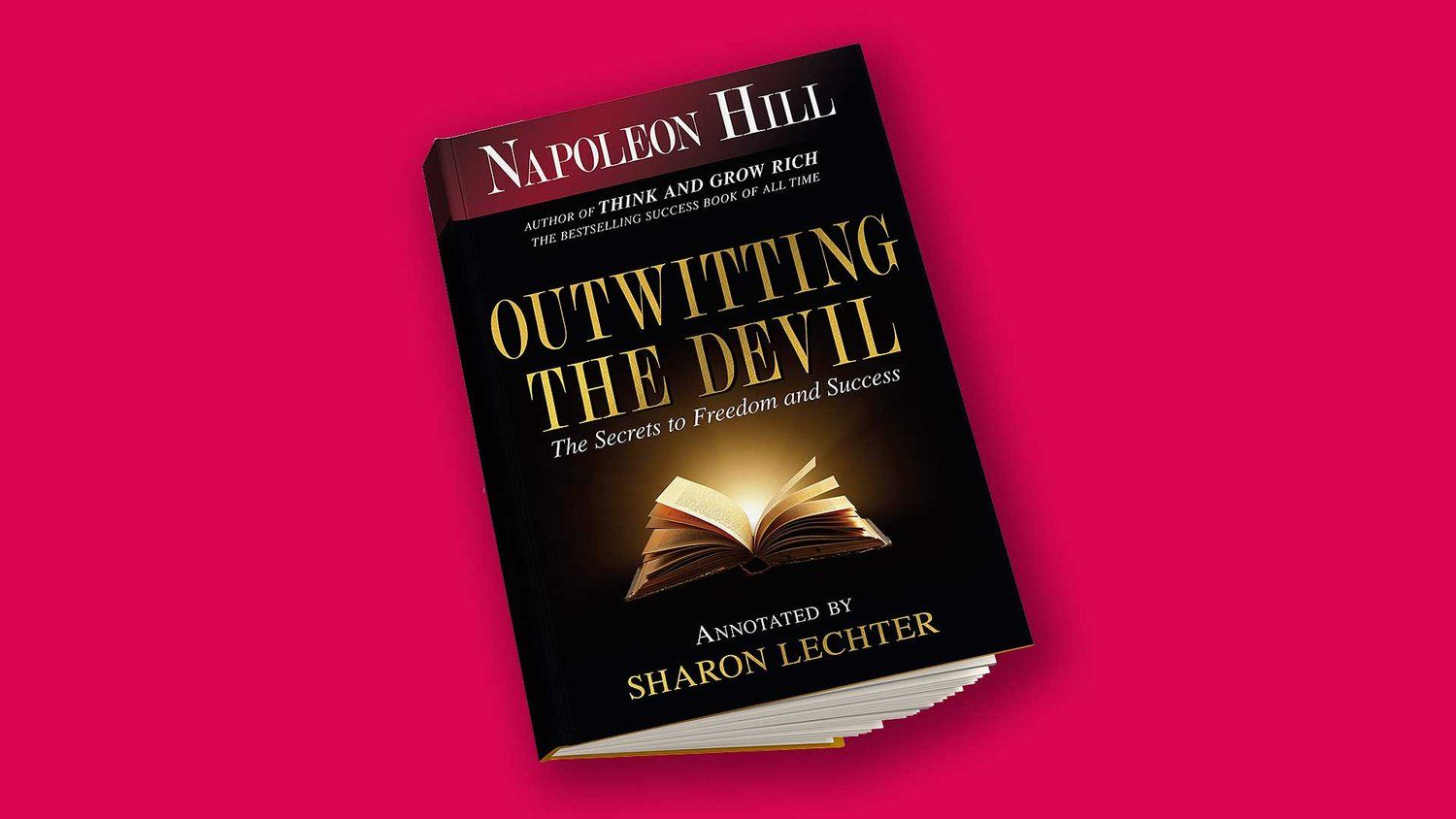
INTRODUCTION
Outwitting the Devil, a controversial and long-suppressed manuscript by Napoleon Hill, is a brutally honest examination of the internal and external forces that keep us stuck—and how to defeat them.
Originally written in 1938 but published decades later, this book was deemed too provocative for its time. It’s framed as a fictional interview between Hill and “the Devil,” who is actually a metaphorical representation of fear, procrastination, conformity, and societal control.
Hill boldly unmasks the real enemies of success—not lack of education or opportunity, but drifting, fear, and a failure to think independently. Through this eerie and gripping dialogue, Hill exposes how people allow themselves to be dominated by habits, institutions, and mental chains.The book is not a polished self-help guide; it’s raw, edgy, and confrontational. And that’s exactly why it works.
The key takeaways in this book are:
First, “Drifting” is the devil’s greatest weapon. Hill coins the term “drifting” to describe aimless living. Drifters go through life without purpose, easily influenced by fear, tradition, and authority. The devil admits that 98% of people fall into this trap.
Second, fear is fabricated and contagious.
Fear of poverty, criticism, ill health, loss of love, old age, and death—these are the six fears the devil uses to control human behavior.
Hill insists that these fears are manufactured by systems meant to keep us in check.
Third, Independent thinking is liberation. Hill champions definiteness of purpose. Those who know what they want, act decisively, and refuse to conform, cannot be controlled by the devil.
Fourth, School systems and religious institutions can be oppressive.
A controversial point, but Hill doesn’t hold back. He argues that these systems, while potentially valuable, often condition people to stop questioning, to obey blindly, and to fear deviation.
Fifth, Self-discipline and habit are the ultimate weapons. The only way to truly “outwit” the devil is to discipline your mind, control your thoughts, and develop habits that align with your definite purpose.
Who Should Read This Book?
This book is not for the faint of heart. It’s for:
🔸 Entrepreneurs battling procrastination or imposter syndrome.
🔸Creatives tired of being stuck in their own heads
Spiritual seekers who want to break out of dogma
🔸Anyone who feels like fear is running their lifeIt’s ideal for those who love psychological depth, a touch of controversy, and a firm slap of wake-up-call wisdom
Conclusion.
Conclusively, “the capacity to surmount failure without being discouraged is the chief asset of every person who attains outstanding success in any calling.”
And, “Education consists not so much of knowledge as of knowledge effectively and persistently applied.”
Outwitting the Devil is not just a book—it’s a mirror.
It forces you to look at your excuses, your fears, and your conformity. It challenges you to take full ownership of your thoughts, habits, and future. This book didn’t just change how I think—it sharpened how I live.